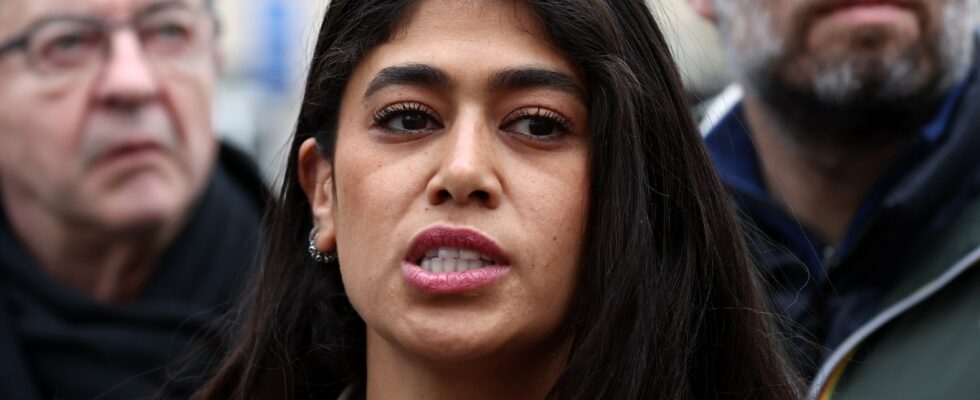Between two rounds of suffocating legislative elections, in early July, the rebellious MEP Rima Hassan chose to spend a few relaxing days in Algeria. Far from the stress of the campaign in France, the Franco-Palestinian lawyer strolls all smiles in the streets of Algiers, publishes photos of her meetings with children and attends the final of the Algerian Football Cup, on July 5. The one who, on the evening of the first round, appeared alongside Jean-Luc Mélenchon with a Palestinian keffiyeh on her shoulders, grabs her keyboard and shouts on social networks : “The Mecca of revolutionaries and freedom is and will remain Algiers.”
Faced with this statement, more than one Algerian chokes… “Saying this means that she simply does not know Algeria,” says Lahouari Addi, professor emeritus at Sciences Po Lyon and author of The Crisis of Muslim Religious Discourse (Presses universitaires de Louvain, 2023). In the 1960s and 1970s, Algiers, Cairo and Damascus were indeed the cities where the struggle against American imperialism and for the freedom of the peoples of the Third World was organized, but this is absolutely no longer the case today. Rima Hassan is fifty years behind.”
“Red Algiers”, the welcoming land of Che and Mandela
Like part of the far left, the rebellious MEP seems stuck in the nostalgia of “Red Algiers”: for more than a decade, after independence won in 1962, the Algerian government welcomed and financed dozens of independence organizations in its capital, from the Palestine Liberation Organization to Nelson Mandela’s ANC, including the Quebec Liberation Front. “Algiers is the Mecca of revolutionaries,” said Guinean independence activist Amilcar Cabral: “Muslims go on pilgrimage to Mecca, Christians to the Vatican and liberation movements to Algiers.”
Che Guevara regularly stayed in the Algerian capital and set up the rear base of several South American Marxist groups there. Even the American Black Panthers founded their international office in Algiers. Then, over the years, the project of “revolutionary socialism” gave way to a regime entirely controlled by the army, which monopolized energy resources to the detriment of the population – more than a quarter of young Algerians were unemployed.
After sixty-two years of independence, “the Mecca of freedom” looks gloomy in international barometers: 110th out of 167 in the democracy index published annually by The Economistor 139th out of 180 in the press freedom ranking established by Reporters Without Borders. “It’s simple, there have never been so many political prisoners in Algeria,” continues Lahouarri Addi. Before the Hirak [NDLR : les manifestations qui ont fait tomber le président Abdelaziz Bouteflika en 2019]the regime was confident and allowed a certain freedom of expression criticizing the “formal power”, that is to say the civilian ministers appointed by the military. But with this wave of protest, the military regime tottered and today it is no longer possible to express a political opinion other than that of the regime.”
A fear that has contaminated the diaspora
Since the fall of Bouteflika, the Algerian government has multiplied repressive laws, equating any criticism of the government or the army with terrorism. Journalists are imprisoned, media outlets closed. The most emblematic case remains that of Ihsane El Kadi, founder of Radio M and Emerging Maghreb, sentenced to seven years behind bars for his writings. “This journalist has no place in prison,” said Khaled Drareni, RSF’s representative for North Africa. “Any sentence depriving him of his freedom, no matter how long, is unfair.”
To prevent any new revolt, the government is sowing fear and paranoia, including in the diaspora. “Thousands of Algerians are using their freedom of speech abroad and criticizing the regime,” says an Algerian intellectual who prefers to remain anonymous for fear of reprisals. “They can enter Algeria, but when they cross the border, they discover that they are accused of plotting against state security and find themselves banned from leaving the country, often for several years and without trial. The regime has thus succeeded in silencing a large part of the diaspora.”
On September 7, Algerians are called to the polls for the first time since 2019. The name of the winner is already known, since President Abdelmadjid Tebboune retains military support. In Algiers, the revolutionaries are now sleeping in prison. As is freedom.
.
